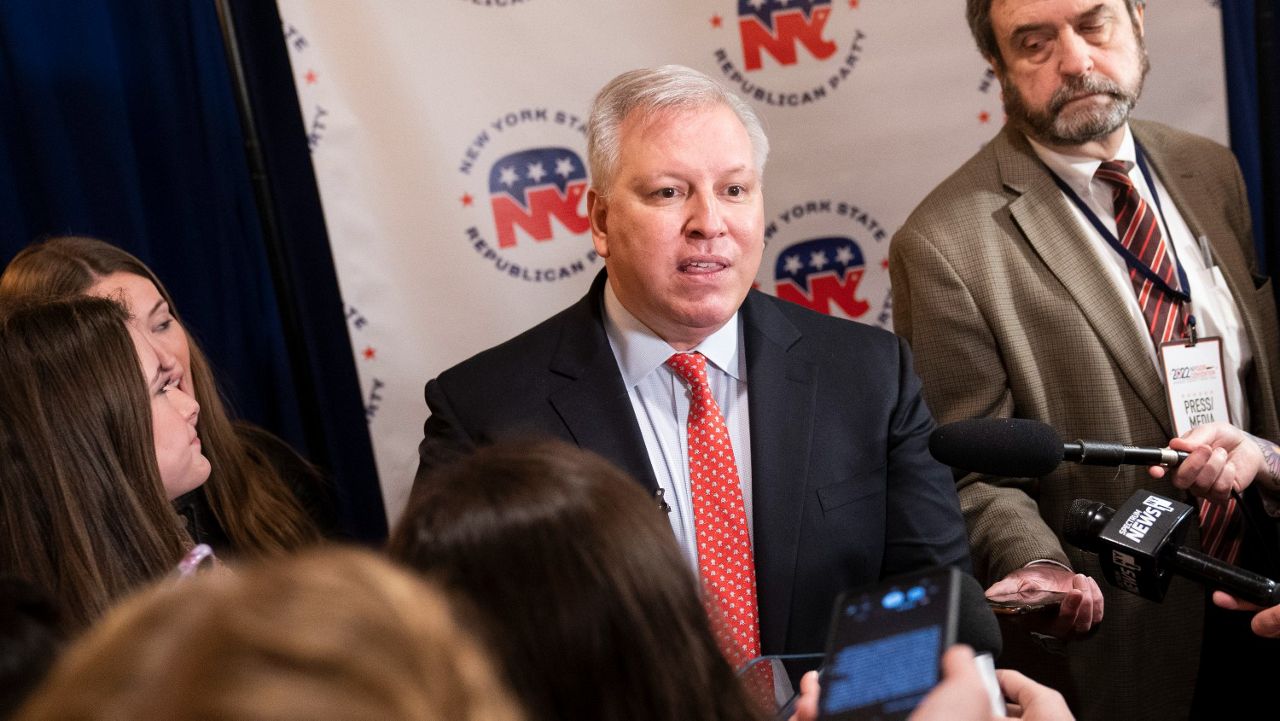Republican candidate for governor Harry Wilson could get access to an independent ballot line this fall with the group Unite NY, potentially keeping his electoral hopes alive heading into the general election.
Wilson and Unite NY, however, will first have to reach the far higher threshold of an independent ballot line being approved: 45,000 signatures of registered voters, including 500 signatures from at least half of the 26 Congressional districts in the state by the end of May.
“In order to turn around New York, we must eliminate Albany’s culture of corruption, and that’s what Unite New York is all about,” Wilson said.
Unite NY was founded by Martin Babinec, an upstate businessman who previously ran for Congress in the Mohawk Valley. The group bills itself as a centrist organization attracting Democrats, Republicans and independents that has sought electoral reforms like opening up the primary elections to non-party members.
“The decision in selecting a candidate was made after thoughtful review of the six gubernatorial candidates in the race who sought our endorsement,” Babinec said. “Unite NY and the committee determined Harry Wilson to have the right experience, focus, and commitment to change NY’s broken system. We welcome New Yorkers of all political persuasions to join us as we seek fundamental change by shifting power out of the hands of party bosses and back into the hands of the people casting votes at the ballot box where it belongs.”
Wilson, a wealthy businessman who is self-funding his bid for governor, is running in the Republican primary along with Rep. Lee Zeldin, former Westchester County Executive Rob Astorino and former Trump administration official Andrew Giuliani.
Independent bids for governor are not unheard of in New York, especially by wealthy individuals. Tom Golisano, the billionaire founder of Paychex, launched a self-funded bid for governor on the Independence Party ballot line.
New York Democratic Party Chairman Jay Jacobs, meanwhile, has signaled plans to form an additional ballot line this fall for Democratic candidates to run on.
Creating new ballot lines is not as easy as it once was in New York. Previously, ballot lines needed only 15,000 voters’ signatures.


